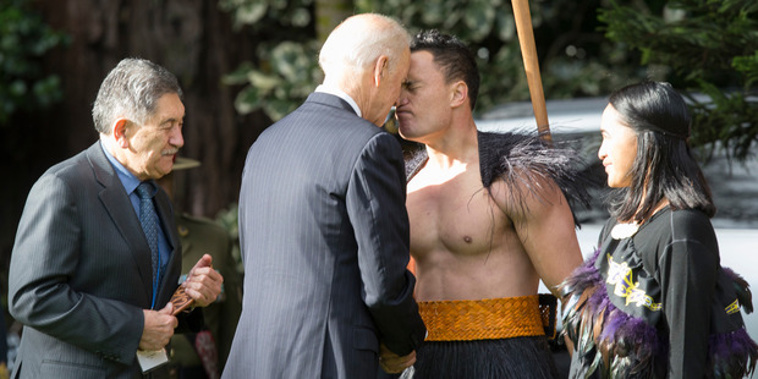
Watching the Maori challenge and welcome to the American Vice President Joe Biden at Government House in Auckland last week, you couldn't help but be impressed.
The ferocity of the challenge makes the hairs on the back of your neck tingle, just as they do for many of us as we watch the power of the All Black haka before the beginning of an international. You feel proud to be a New Zealander, just as many of us feel a sense of pride when a long standing land grievance with Maori is settled.
But there's a disconnect between our Pakeha-dominated society and our indigenous population that no amount of pride appears to be able to improve.
New Zealand's prison population's expected to hit 10,000 next year and half of those incarcerated in male prisons are Maori, growing to 57 percent Maori in the female lockups. And yet Maori make up just 15 percent of our population.
Okay if you look across the ditch it's worse. Aboriginals make up just three percent of the Aussie population and yet 28 percent of their inmates are their indigenous people.
But that shouldn't give us any reason to feel complacent, something in both countries is sadly awry.
And before you say it, they should just learn how to behave themselves, it's obviously not as simple as that.
The Waitangi Tribunal's this week considering a case brought by a 25 year veteran of the probation service Tom Hemopo who's made a number of claims about the unequal treatment of Maori prisoners, and how rehabilitation programmes are treated as a privilege, which could account for the fact that 77 percent of Maori are reconvicted within five years of being released.
The Crown argued that since the former probation officer left the service five years ago things have changed, like Maori being worked with at a local level, an appointment of a Maori director in Corrections working with a dedicated staff of 24 (to stop the reoffending of more than five thousand) and research on why they're getting into trouble after their release.
Hemopo argues that you can attach fancy names to any programme but the fact remains, the statistics remain the same.
And of course he's right. Until there's ownership by all of us, including Maori, rather than academic argument about the problem, we'll be talking about it in a decade from now, just as we were a dozen years ago when Tom Hemopo took another case on the same topic to the Tribunal!
Take your Radio, Podcasts and Music with you








